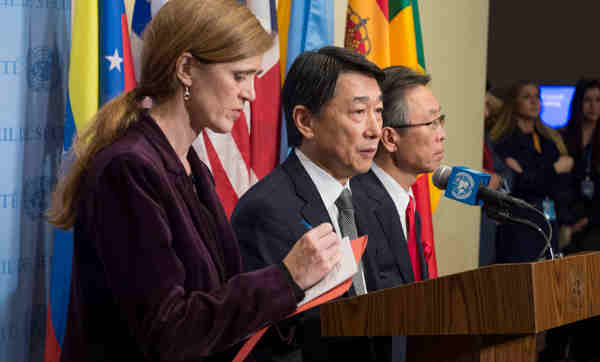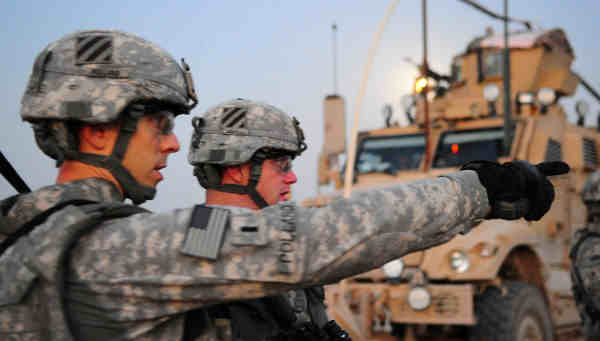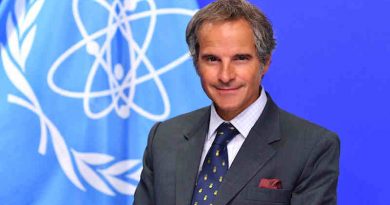Nuclear-Weapon States Oppose Elimination Treaty

According to a UN statement released Friday, several nuclear-weapon States reiterated their opposition to a proposed legally binding treaty to prohibit nuclear weapons leading to their elimination.
They argue that such an instrument would not contribute to enhancing global peace and security, as the First Committee (Disarmament and International Security) continued its thematic debate on those arms on Friday and heard the introduction of two draft resolutions.
Many delegations focused their attention on a proposal by the Open-ended Working Group taking forward multilateral disarmament negotiations that the General Assembly — in the wake of an inconclusive 2015 Treaty on the Non-Proliferation of Nuclear Weapons Review Conference — hold a meeting in 2017 to begin negotiations towards a legally binding instrument to prohibit nuclear weapons with a view to their total elimination.
The Chair of the Open-ended Working Group, Thani Thongphakdi (Thailand), presenting its report to the Committee, noted how it reflected a wide range of views and proposals, identified important areas of convergence and summarized all important ideas that emerged during its substantive sessions. While the report conveyed the recommendation of a 2017 conference, he acknowledged that some States had disagreed with that approach.
Speakers then shared their views on the effectiveness of such a treaty. The representative of the United States argued for a pragmatic and consensus-based approach.
“The world’s nuclear weapons arsenals did not appear overnight and they will not be drawn down overnight,” he said, adding that the challenge was not so much a lack of legal instruments, but rather political and security realities.
He said a prohibition treaty would undermine existing non-proliferation and disarmament regimes and risk creating an unbridgeable divide between States. Moreover, there was no way to effectively verify such a treaty, he said, emphasizing that the United States would vote against any resolution calling for negotiations on such an instrument.
His counterpart from France said the proposal for a prohibition treaty was dangerous in many ways. There was no sense of having a debate on disarmament that dismissed — or stigmatized — the concerns of States that had based their security on nuclear deterrence.
Such a treaty would result in no concrete disarmament measures, nor would it add value for the security of non-nuclear-weapon States. “The step-by-step approach is the only realistic and effective path to take,” he asserted.
The representative of the United Kingdom defended his country’s nuclear deterrent policy, citing an unpredictable international security environment.
There was a risk that States might use their nuclear capability to threaten the United Kingdom, try to constrain its decision-making in a crisis or sponsor nuclear terrorism.
Citing a recent example, he said that in the past two years, there had been a disturbing increase in the Russian Federation’s rhetoric about the use of nuclear weapons and the frequency of snap exercises.
Speaking in favour of a prohibition treaty, speakers from non-nuclear-weapon States emphasized the importance of putting humanitarian concerns at the heart of the disarmament and non-proliferation debate.
Malawi’s representative said it was clear beyond a doubt that an overwhelming majority of States were committed to starting negotiations in 2017 on a prohibition treaty. Now was the time for the world to act, and not when disaster struck, he added.
The representative of Mexico said it was hard to justify the cost of maintaining the world’s estimated 15,000 nuclear weapons, given commitments to achieve the Sustainable Development Goals by 2030.
Recent events on the Korean Peninsula should signal the urgent need to make progress in disarmament and nuclear non-proliferation, he said, adding that the only way to prevent an accidental nuclear detonation was to totally eliminate those weapons.
During the meeting, the Committee also heard the introduction of four draft resolutions, on the African Nuclear-Weapon-Free Zone Treaty, nuclear disarmament, reducing nuclear danger and on weapons of mass destruction.
Also participating in the thematic debate were representatives of the Philippines (on behalf of the Association of Southeast Asian Nations), Nigeria (on behalf of the African Group), Germany (on behalf of the Non-Proliferation and Disarmament Initiative), Armenia (on behalf of the Collective Security Treaty Organization), Mexico, Thailand, Qatar, Switzerland, Iraq, Senegal, Austria, Netherlands, Malawi, Sweden, Pakistan, Bangladesh, Israel, Costa Rica, and India.
The representatives of the Democratic People’s Republic of Korea, Syria, United States, Republic of Korea, Libya and the United Kingdom spoke in exercise of the right of reply.
The First Committee will meet again at 10 a.m. on Monday, 17 October, to continue its thematic debate on nuclear weapons.



